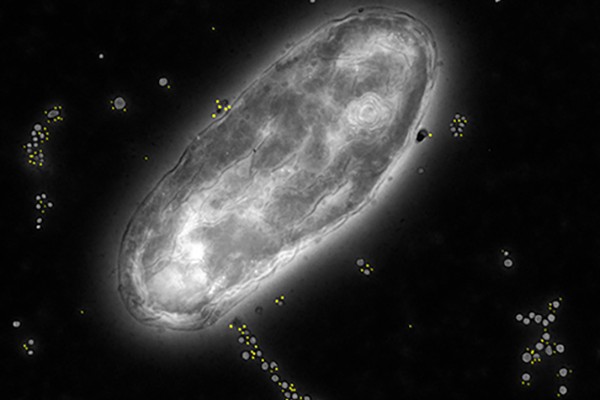New insight into inflammatory bowel disease may lead to better treatments
A newly discovered link between bacteria and immune cells sheds light on inflammatory bowel disease, an autoimmune condition that affects 1.6 million people in the United States, according to researchers at Washington University School of Medicine in St. Louis.
Mothers can pass traits to offspring through bacteria’s DNA
The DNA of
bacteria that live in the body can pass a trait to offspring in a way
similar to the parents’ own DNA, a new mouse study suggests. According to the authors, the discovery means
scientists need to consider a significant new factor – microbial DNA– in their efforts to understand
how genes influence illness and health.
Viruses may play unexpected role in inflammatorybowel diseases
Inflammatory bowel diseases are associated with a
decrease in the diversity of bacteria in the gut, but a new study led by
researchers at the School of Medicine has linked these same illnesses to an increase in the diversity of viruses.
Growing human GI cells may lead to personalized treatments
A method of growing human cells from tissue removed from a patient’s gastrointestinal (GI) tract eventually may help scientists develop tailor-made therapies for inflammatory bowel disease and other GI conditions. Pictured are Kelli L. VanDussen, PhD, and Matthew A. Ciorba, MD, members of a School of Medicine team that developed the method.
Diabetes may start in the intestines, research suggests
Scientists at Washington University School of Medicine in St. Louis have made a surprising discovery about the origin of diabetes. Their research suggests that problems controlling blood sugar — the hallmark of diabetes — may begin in the intestines. The new study, in mice, may upend long-held theories about the causes of the disease.
Washington University scientists play key role in Crohn’s, colitis initiative
Scientists at Washington University School of Medicine in St. Louis are playing a leading role in an international collaboration dedicated to understanding genes that contribute to inflammatory bowel disease.
Colitis patients diagnosed later in life tend to have better disease outcomes
Adults diagnosed with ulcerative colitis after age 50 are more likely to achieve remission from their symptoms than patients diagnosed at younger ages, even when those patients receive similar treatments, according to research at Washington University School of Medicine in St. Louis. The study is the first to look at patients whose colitis was treated with modern medications. Nearly 1 million U.S. adults have ulcerative colitis.
Countering Crohn’s Disease
Patients treated in the GM-CSF pilot study showed a decrease in inflammation: an inflamed colon before treatment (top) and after, showing no pathologic abnormality.Researchers at Washington University School of Medicine in St. Louis continue to make progress in finding a potential treatment for Crohn’s disease, a chronic and serious inflammatory disease of the gastrointestinal tract that affects about half a million people in the United States. Later this month, the research team of Joshua Korzenik, M.D., assistant professor of medicine, and Brian Dieckgraefe, M.D., Ph.D., also an assistant professor of medicine in the division of gastroenterology, will present preliminary data from patients with moderate to severe Crohn’s disease who were treated at 33 centers around the United States. Patients who received daily injections of a drug called GM-CSF (granulocyte macrophage colony stimulating factor), which stimulates the activity of certain cells in the immune system, tended improve. And although the data have not yet been presented, the results from the placebo-controlled phase II treatment study were positive.

